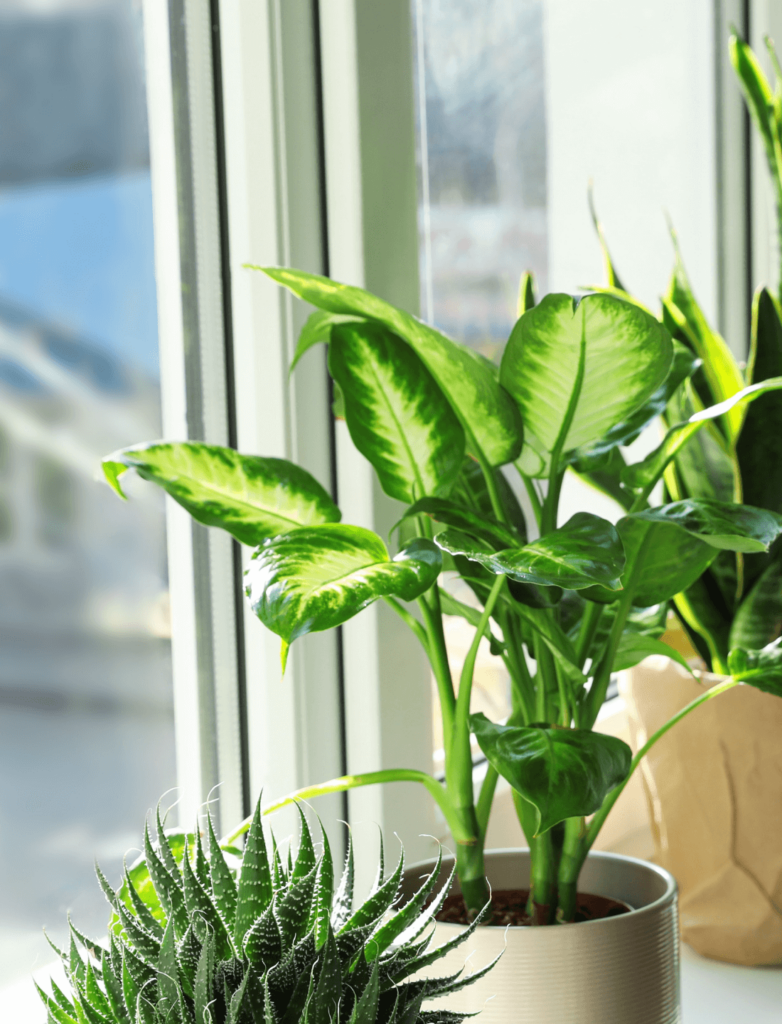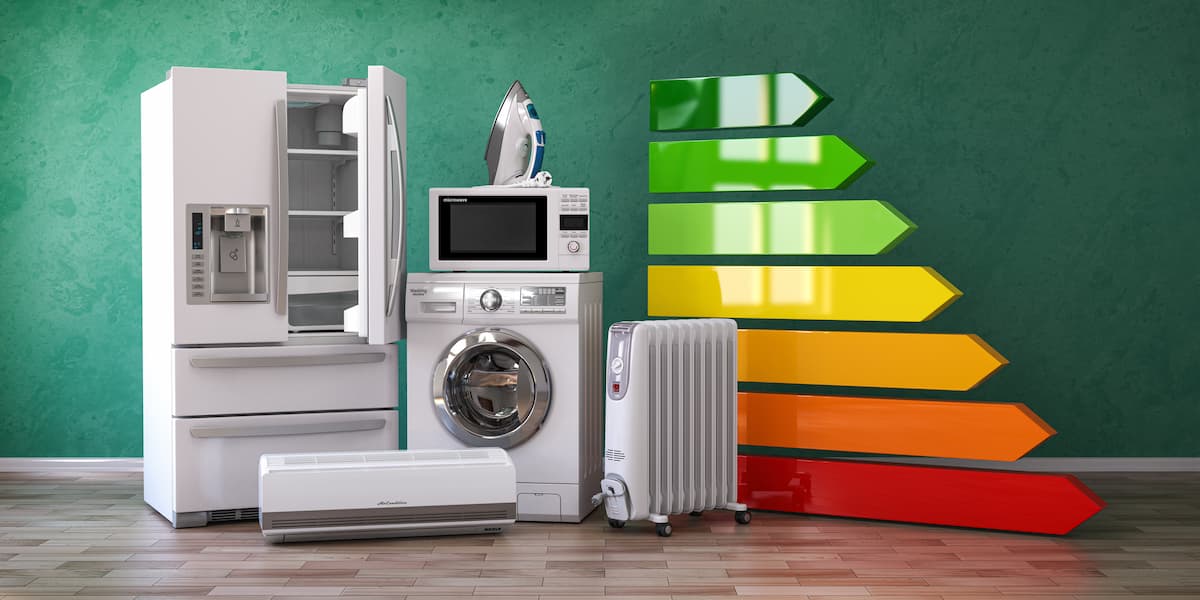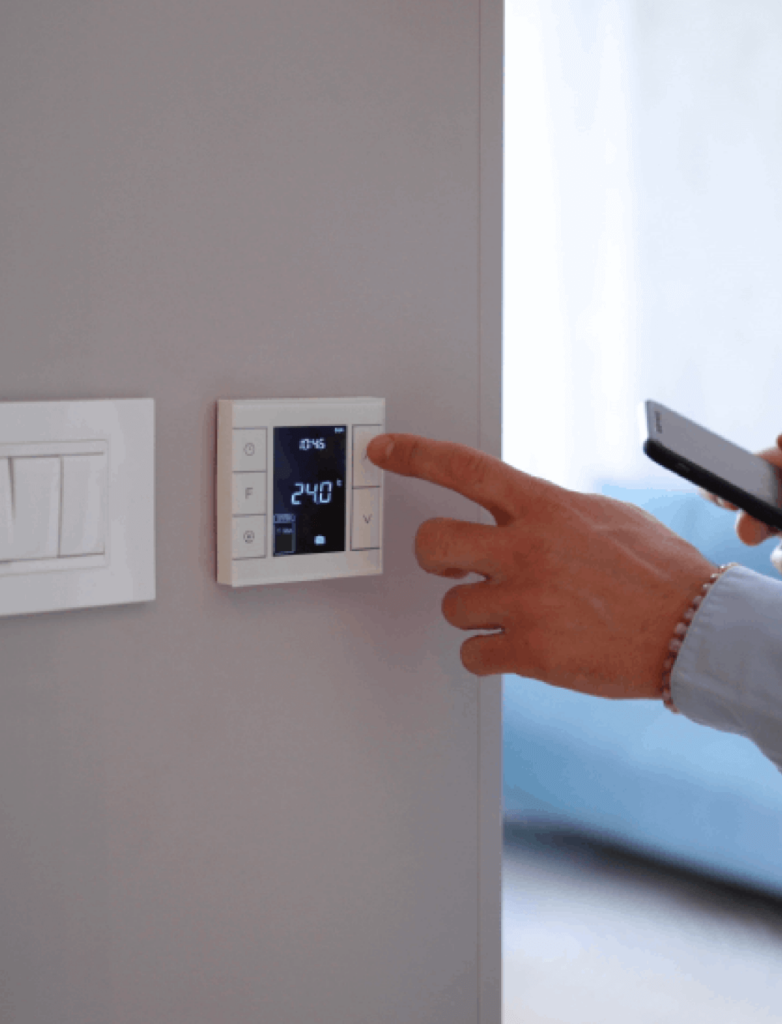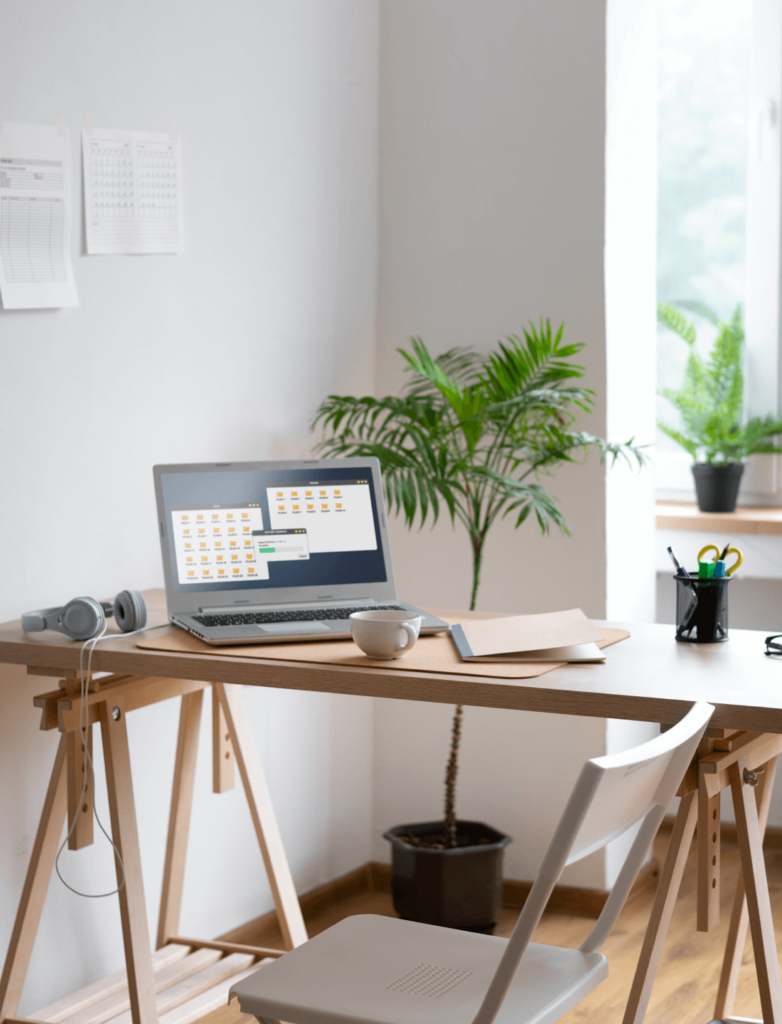49 of the Best Home-Energy Saving Tips
As a homeowner, minimizing your environmental impact and reducing energy consumption patterns is vital. One of the ways you can maximize your conservation habits is by determining how much energy you use at home.
Luckily, Kiwi Energy can provide you with innovative solutions for smart, sustainable practices. Solutions include using energy-saving products and embracing low-carbon habits in your home. Take a look below for some home energy-saving tips you can follow to reduce your carbon footprint.
Heating and Cooling Tips
You can be more energy-efficient in several ways while keeping your property’s interior temperature in check. While some of these home energy-saving tips require you to upgrade to new energy-conservation products, others involve a change of habits. Here are some heating and cooling tips to consider:
- Stop air leaks by sealing, caulking, or weather-stripping drafty windows and doors.
- Install a programmable thermostat and set it to adjust the temperature for when you’re not home.
- Service your heater by cleaning or replacing your air filters (which you should continue to do regularly). Check your AC refrigerant level and clean your AC evaporator coils. You may also want to schedule an inspection with an HVAC technician, who can ensure your system is up to speed and identify any issues before they become major expenses.
- Use fans throughout the spring and summer to create a cooling breeze so you can raise your thermostat setting and still keep your home comfortable on warmer days. Remember to use the bathroom fan to remove heat and humidity from your home when you shower or bathe.
- Be sure to shut off ceiling fans when you leave the room—fans cool people, not rooms, by creating a chill wind effect.
- On pleasant spring days, embrace natural ventilation by opening your windows in the evening to flood the space with cooler air. Close them in the morning before the day warms up to capture the cool.
- Use white blinds or shades to deflect the light away from your home.
- During the warmer months of the year, close your blinds or shades over windows facing south and west during the day to minimize the heat from sunlight.
- Consider installing an air-source heat pump. They can provide three times more heat to a home than the electrical energy it consumes.
- Seal your heating and cooling ducts to reduce energy waste. One idea is to wrap your ducts in insulation to prevent them from getting hot in the summer or cold in the winter.
- Use your exhaust fans when cooking or using the shower. Fans can remove humidity and minimize the load on your air conditioning unit.


Home Improvement Tips
Home improvement sustainable practices can reduce energy dependence, improve the efficiency of your products, and reduce the workload on our end. Whether upgrading to energy-efficient light bulbs or replacing your windows, you should consider several home improvement tips to reduce your energy consumption patterns.
- Replace traditional light bulbs with LEDs that use less energy and have a lower heat output.
- Insulate your hot water pipes to prevent heat loss during the winter.
- If you plan on getting new appliances, replace the old ones with Energy STAR ones. In 2020, the program managed to reduce more than 5% of U.S. greenhouse gas emissions.
- Replace old windows with high-performance windows witha low U-value, low solar heat gain coefficient, and an air leakage rating of 0.3 cubic feet per minute or less.
- Conduct an at-home energy assessment to determine if you have air leaks and the appropriate level of insulation.
- Plant trees near your home to provide shade so you can spend more time outside during the warmer months and use your appliances less.
- Use motion detectors that turn off your lights automatically when no one is present. Lighting accounts for approximately 15% of a home’s electricity use.
- Keep your oven door closed to conserve electricity. When opened, your oven uses more electricity to increase its temperature.
- Consider using a light dimmer since it reduces wattage and electricity. Dimmers also minimize the flow of electricity to the bulb, allowing it to operate with lower power outputs.
Tips for Appliances
Common home appliances can drive up your household’s energy more than you think. While household machines provide us with a convenient way to do chores, it’s important to find viable conservation solutions while prolonging the performance of these appliances. Here are the best energy-saving tips for home appliances.
- Use the warm and cold water setting on your washer, which uses significantly less energy than hot water.
- Set your dryer to low heat and clean the lint filter after every run to improve efficiency.
- Lower the temperature of your water heater to the warm setting (120 degrees Fahrenheit).
- Only run full loads in the washer, dryer, and dishwasher; they use the same amount of energy regardless of the load.
- Set your dishwasher to use a cool air dry, or skip the drying cycle altogether and air dry your dishes.
- Turn off electronics and unplug battery chargers when not in use.
- Keep your refrigerator temperature setting at 37 degrees Fahrenheit and your freezer at 3 degrees Fahrenheit—the most energy-efficient temperatures.
- During warm spring or summer days, avoid using the oven and instead cook on the stove, microwave oven, or, even better—grill outside.
- Clean your refrigerator coils. If the coils get dusty, your fridge will need more energy to cool your food.
- Use a modern dishwasher when washing your dishes instead of hand-washing them. A modern appliance takes less time to heat up than a tap.
- Switch out your old shower head with a 2.5-gallon-per-minute one since it conserves more water than a standard option.
- Consider using a smart plug to turn off electronic devices automatically. They operate as energy monitoring plugs preventing devices from entering standby mode.


Warm Weather Tips
As the summer months get closer, our reliance on AC units, fans, and refrigerators skyrockets. While we can keep our comfort levels high, our consumption patterns inflict a toll on our efforts to remain environmentally friendly. So before you crank up your AC system, consider these energy conservation tips for the summer.
- If you own an attic, install a house fan there. A fan can pull cool air into your home while forcing hot air through your vents.
- Cross-ventilate your home can keep warm interior air away. Put one fan in front of a window with the blower side facing inward, and keep another fan facing outward on the opposite side of your room.
- If you have a fan in your bathroom, turn it on just after a shower. The fan will reduce any heat or humidity that accumulates.
- If you have interior doors, leave them open to help your AC system keep your temperature balanced throughout your home.
- Keep items like your laptop away from the thermostat. Your thermostat can sense the heat generated by these items, making the system believe your room is hotter than it is.
- If you live in a two-story home, remain on the lower level for better comfort. Your AC system takes longer to reach an upstairs room than a downstairs one. Plus, heat rises, so staying downstairs will be cooler.
Cold Weather Tips
Colder weather calls for smart energy conservation decisions. While the summer brings scorching heat that drives up AC usage, frosty winters make us rely heavily on our heating system. However, there are practical solutions for reducing energy waste while keeping your family cozy. Here are some home energy-saving tips for the winter season.
- Close the damper when you’re not using the fireplace to prevent heat from escaping up the chimney.
- Wrap a heated blanket around your hot water tank to retain more heat. When wrapped properly, your water tank won’t have to run as often.
- Avoid blocking your air vents since this can cause leaks and prevent your room from receiving good circulation.
- Place area rugs with rug pads on hard floors for added insulation. Rugs and pads can also keep your feet from freezing.
- Reset your water heater system to prevent unnecessary cycles that increase energy usage. Your system relies on excessive energy to heat your water to a certain amount.
- Use an indoor space heater to heat small areas inside your home.


Remote Work Tips
More employees are embracing remote work as the new norm. However, our changing work lifestyle comes at a cost—greater home consumption habits which result in energy waste. You may be one of many Americans in this category. If so, the following are the best energy-saving tips for home if you work remotely.
- Consider putting your computer in sleep mode when you’re not using it. The average desktop computer uses between 60 and 300 watts. Sleep mode lets you use fewer watts of electricity.
- If you use a power strip for multiple electrical devices, switch it off when you log off to conserve energy.
- Use your laptop’s built-in energy-saving features.
- Reduce paper waste by using both sides of your paper when printing.
- Unplug your game console and television to reduce household energy consumption.
Learn More About Conserving Energy
Learning about home energy-saving tips is the first step to adopting a sustainable lifestyle. Now it’s time totake advantage of our home energy savings tips guide to discover more about conservation efforts. You can also dive into our energy blog to learn about innovative ways to practice sustainability.
Once you have an energy supplier dedicated to helping you conserve energy, there are other things you can do around your home to preserve energy year-round.
Learn how Kiwi Energy is championing a sustainable world through our environmental fund. When you’re ready, enroll today and see what energy services we can provide.


